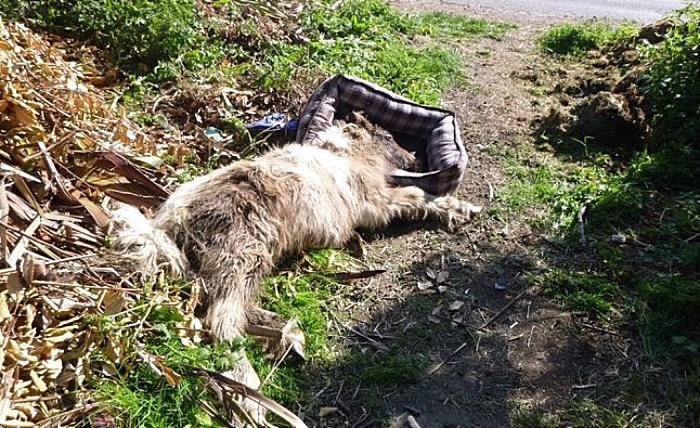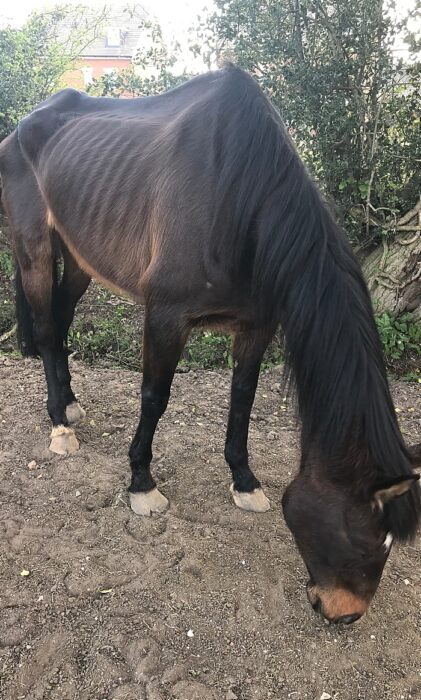
RSPCA were called about more than 407 equine incidents in Cheshire last year, sparking fears that more sick horses will be dumped during the current pandemic.
The charity is warning a financial recession could plunge the country into a second equine crisis which has already led to thousands of dumped and dying horses and crippled welfare charities.
In 2019, the charity received reports of more than 4,241 incidents involving horses in the midlands, 407 of those in Cheshire.
By the end of the year it had nearly 900 in its care nationally, leaving its rescue centres full and funding hundreds more in private boarding.
Since lockdown, the RSPCA has received 35 reports about horses in Cheshire, but fears much worse is to come if, as expected, the Covid crisis sparks a UK and global recession.
Christine McNeil, the charity’s National Equine Inspectors Co-Ordinator, said: “This is a truly worrying time for equine charities – we still haven’t got a handle on the repercussions of the current horse crisis, and it now looks like the worst is yet to come.
“In April 2011, before the effects of the financial recession had hit, the RSPCA had 290 horses in its care, already more than our official stables could house.
“The following year, the impact of the crisis really began to hit and our officers were called out every day up and down the country to neglected and abandoned horses.
“By May 2012, the number of horses in our care had leapt to 600. Fast-forward to today, and we’re caring for 927 horses – that’s three times the amount since the crisis hit, and we strongly fear that the impact will be even worse this time round.
“With such a huge number of horses in our care, and so many in private boarding, at great cost, we have already had to adapt how we try to help as many horses as we can.

“For example, several ‘herds’ of horses in need are being cared for in situ with our officers visiting regularly to feed and care for them, until we can find spaces in one of our centres for them, or funds to transport them to private boarding.”
The current horse crisis is thought to have been sparked by continued overbreeding, coupled with falling demand for some types of horses.
Threats of a financial recession this year has led to fears that irresponsible horse breeders will continue to breed their animals in a bid to turn a quick profit and that existing horse owners will struggle financially to keep their animals and cover vet bills.
Between March-May 2020, during the lockdown period, the charity has received reports of 2,116 incidents relating to horses alone.
The RSPCA has taken in 82 horses during lockdown already, bringing the total number of horses in the charity’s care to 927.
The charity spends £5,200 per year for the care of each horse taken in – that’s over £4.8 million each year.
The RSPCA works alongside the Blue Cross, Bransby Horses, British Horse Society, Redwings, The Donkey Sanctuary and World Horse Welfare, in a bid to tackle this national crisis.
Equine organisations have also been hit by the difficulty of rehoming under present restrictions.
Despite these difficulties, the RSPCA has managed to rehome 21 horses in the 10 weeks since lockdown – this compares to 56 in January and February.
Christine added: “The public’s help is absolutely vital to keep the RSPCA afloat during this extremely difficult time.
“We can’t stress how much we need loving homes for our horses and ponies, and we are urging those with experience of horses to please consider rehoming one of our wonderful rescue horses.
“Last year, we rehomed 242 horses and ponies to loving new homes, with many going on to become superb children’s riding ponies, happy hacking horses, fantastic project youngsters, and wonderful retired companions.”
You can donate at www.rspca.org.uk/covid





















Recent Comments